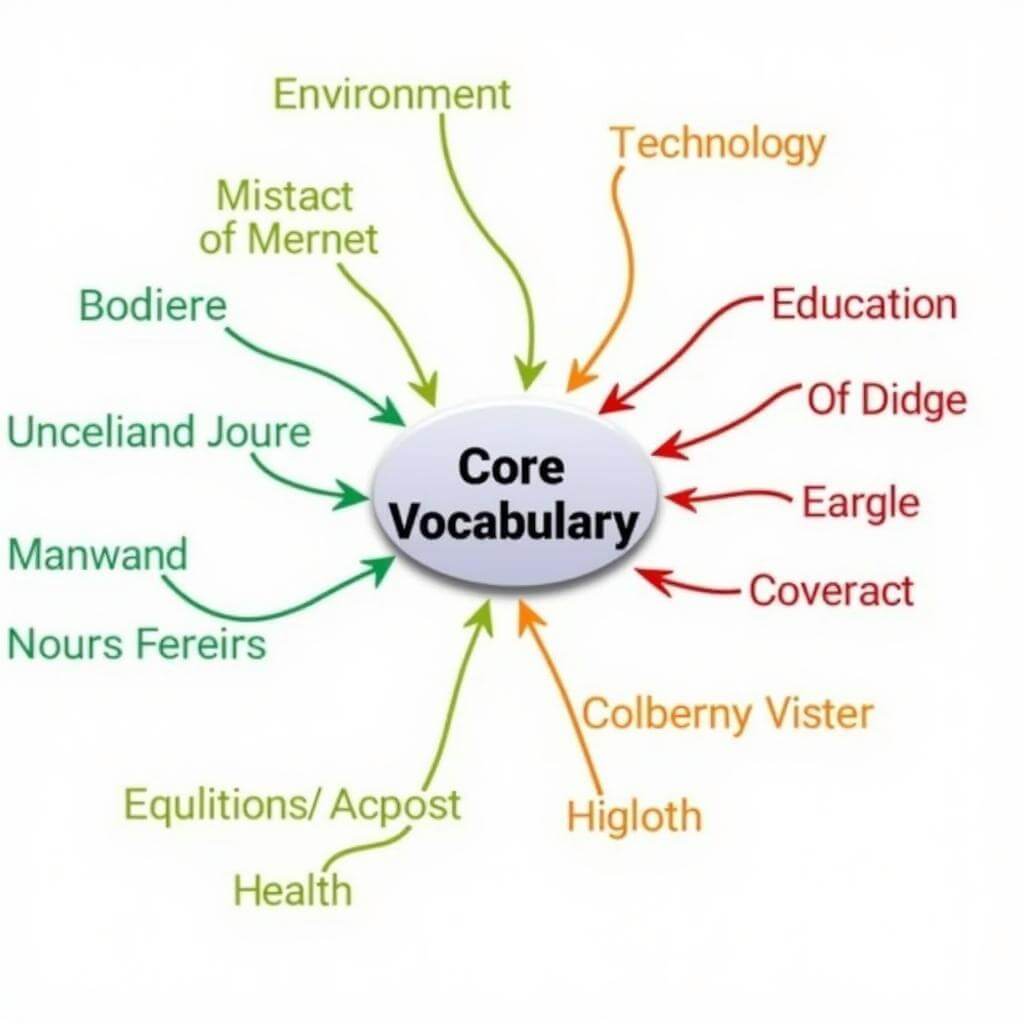Understanding the Challenge of Fast Audio in IELTS Listening
The IELTS Listening test often presents candidates with fast-paced audio recordings, challenging their ability to comprehend and extract information quickly. This skill is crucial for achieving a high score in the listening section. Fast audio comprehension requires a combination of focused attention, quick processing, and effective note-taking strategies.
Strategies for Enhancing Fast Audio Comprehension
1. Develop Active Listening Skills
Active listening involves fully concentrating on the audio, understanding the message, and responding thoughtfully. To improve this skill:
- Focus intently on the speaker’s words and tone
- Visualize the information being presented
- Anticipate what might come next based on context
For example, if you hear “The conference will be held on…” anticipate that a date or day of the week will follow.
2. Expand Your Vocabulary
A broad vocabulary allows for quicker recognition of words in fast speech. To enhance your vocabulary:
- Learn common IELTS topics vocabulary (e.g., education, environment, technology)
- Study academic word lists
- Practice with word families (e.g., communicate, communication, communicative)
For instance, knowing the word “sustainable” can help you quickly understand phrases like “sustainable development” or “sustainability practices” in fast audio.

3. Practice with Varied Accents
IELTS uses speakers with different English accents. Familiarize yourself with:
- British English
- American English
- Australian English
- Canadian English
- New Zealand English
Listen to podcasts, news broadcasts, and educational videos featuring these accents regularly.
4. Improve Note-Taking Techniques
Efficient note-taking is crucial for fast audio comprehension. Try these methods:
- Use abbreviations and symbols (e.g., & for “and”, → for “leads to”)
- Write key words rather than full sentences
- Develop a personal shorthand system
For example, instead of writing “The meeting is scheduled for 3 pm on Tuesday”, note “mtg 3pm Tue”.
5. Predict and Anticipate Information
Use context clues to predict upcoming information. This mental preparation can significantly boost comprehension speed. For instance:
- If you hear “The weather forecast for tomorrow…”, expect to hear temperature, precipitation, or wind conditions next.
- When you encounter “The three main causes are…”, prepare to note down three distinct points.
Applying Strategies to IELTS Listening Tasks
Let’s examine how these strategies apply to different IELTS Listening question types:
Multiple Choice Questions
For fast audio in multiple choice questions:
- Read the question and options quickly before the audio plays
- Underline key words in the question
- Listen for synonyms or paraphrases of these key words
Example:
Question: What is the main reason for the decline in bee populations?
A) Climate change
B) Pesticide use
C) Habitat loss
In the fast audio, you might hear: “While various factors contribute to the decreasing number of bees, research indicates that the widespread application of chemical crop treatments is the primary culprit.”
Here, “chemical crop treatments” is a paraphrase for “pesticide use”, leading to option B as the correct answer.
Matching Information
For matching tasks with fast audio:
- Skim the list of items to be matched
- Listen for key words or phrases that connect to these items
- Use elimination strategy as you progress
Gap-Fill Exercises
For gap-fill questions during fast audio:
- Read the sentence before and after the gap
- Predict the type of word needed (noun, verb, number, etc.)
- Listen for words that fit both grammatically and contextually
Example:
“The new library will open on ____ 15th, 2023.”
Even in fast speech, you can anticipate that a month is required to fill this gap.
Common Mistakes to Avoid
- Fixating on missed words: Don’t dwell on information you’ve missed; stay focused on the ongoing audio.
- Writing too much: Avoid transcribing everything; focus on key information.
- Ignoring context: Don’t isolate words; understand them within the broader context.
- Neglecting practice: Regular practice with fast audio is essential for improvement.
- Overlooking signpost language: Pay attention to phrases like “firstly”, “in contrast”, “however”, which signal important information.
Effective Practice Techniques
To improve your fast audio comprehension for IELTS Listening:
- Use IELTS practice tests with increasing speed settings
- Listen to news broadcasts at 1.25x or 1.5x speed
- Engage in shadowing exercises: repeat what you hear immediately after the speaker
- Participate in English conversation groups to improve real-time processing
- Record yourself summarizing fast audio passages to assess comprehension
Conclusion
Boosting comprehension during fast audio in IELTS Listening is a skill that can be developed with consistent practice and the right strategies. By improving your active listening, expanding your vocabulary, familiarizing yourself with various accents, and honing your note-taking skills, you can significantly enhance your performance in this challenging aspect of the test. Remember, the key to success lies in regular practice and applying these techniques to a wide range of listening materials. Keep refining your skills, and you’ll find yourself better equipped to handle even the fastest audio passages in your IELTS Listening test.